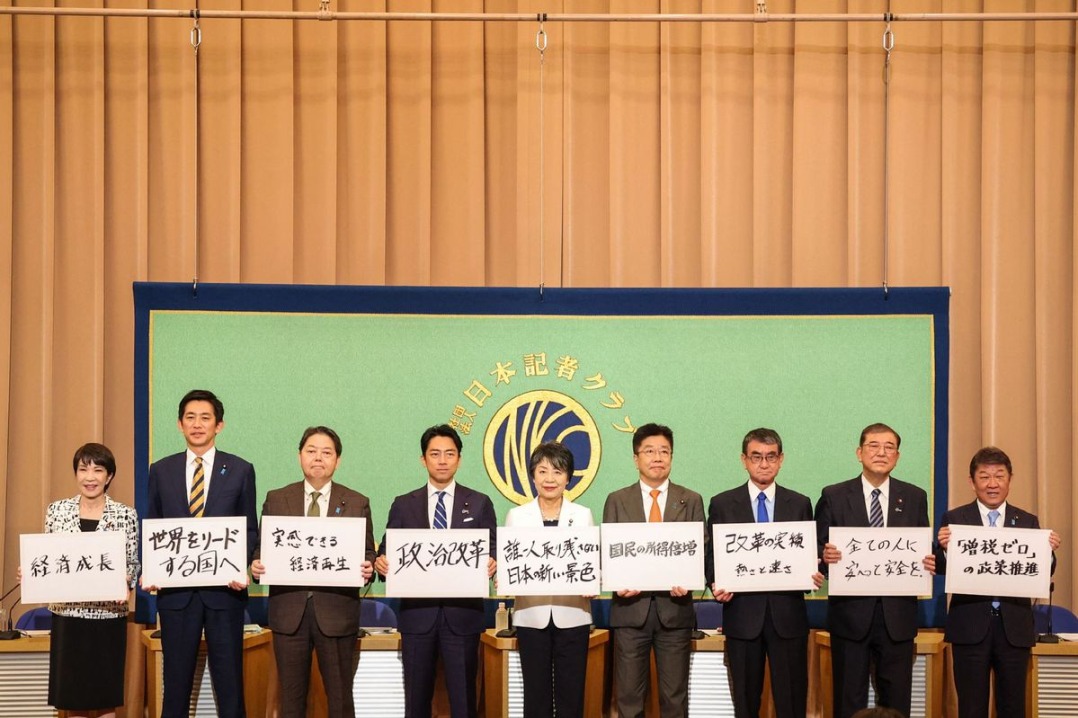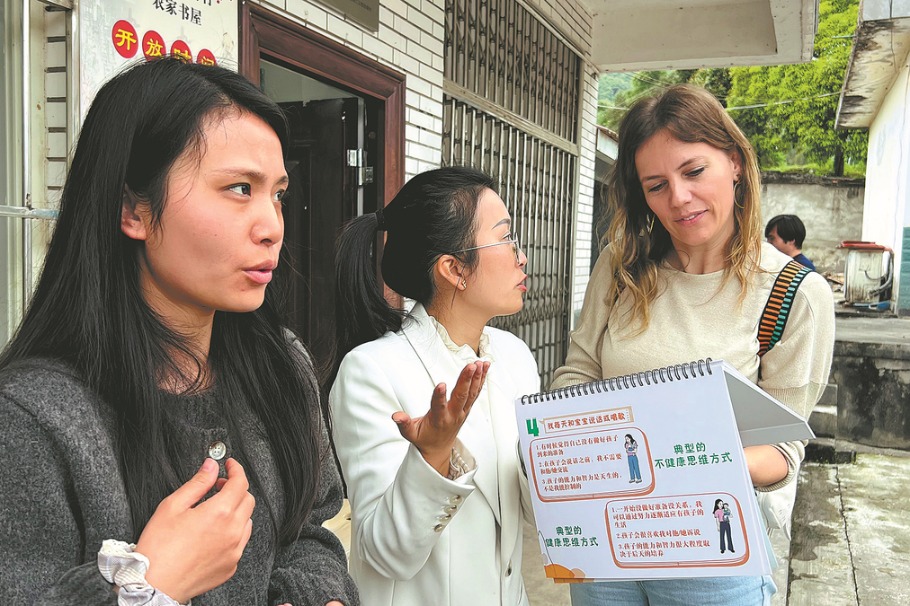LDP leadership race heats up with Ishiba, Takaichi and Koizumi leading polls


The latest opinion poll results show that Japan's ruling Liberal Democratic Party leadership election is largely a three-way race.
Shigeru Ishiba, former secretary-general of the LDP, is the first choice of LDP supporters who were asked to name their preferred candidate to lead the party in a recent Nikkei poll. The 67-year-old Ishiba is a champion of regional revitalization. Sanae Takaichi, the minister in charge of economic security, emerged as the second favorite, while former environment minister Shinjiro Koizumi was the third choice.
Nine candidates are vying to succeed Japanese Prime Minister Fumio Kishida in Friday's LDP presidential election. The others in the fray are Foreign Minister Yoko Kamikawa, Digital Transformation Minister Taro Kono, Chief Cabinet Secretary Yoshimasa Hayashi, former economic security minister Takayuki Kobayashi, LDP Secretary-General Toshimitsu Motegi and former chief cabinet secretary Katsunobu Kato.
The winner of the most crowded, complicated and uncertain leadership election the LDP has seen in ages is assured of the premiership by virtue of the LDP-led ruling bloc's majority in parliament.
The contenders have radically different takes on everything from fiscal spending, monetary easing and higher taxes to separate surnames for married couples, use of nuclear power and international challenges.
A monthly survey by Japan's financial market information provider QUICK projected Takaichi, 63, as the front-runner as Japanese market participants are hopeful the hawkish lawmaker would pursue economic policies similar to "Abenomics" — a three-pronged approach launched by then Prime Minister Shinzo Abe in 2013, combining fiscal expansion, monetary easing and structural reform.
Takaichi, known as Abe's protege, has pledged to seek economic growth with "strategic fiscal stimulus" aimed at creating jobs and increasing incomes.
"In fact, the majority of Takaichi's nominees are pro-Abe politicians, and Abe's supporters include many academics who have promoted Abenomics," Yuri Kono, professor of political science at Hosei University, said.
Takaichi also topped the Kyodo News Agency's poll of LDP supporters as most fit to be Japan's next leader.
If elected, Takaichi would make history as Japan's first female prime minister.
Koizumi, 43, has the support of fellow lawmakers in the race, according to surveys by Japanese newspapers Sankei Shimbun and Mainichi Shimbun, raising the possibility of him becoming Japan's youngest prime minister.
Candidates will compete for a total of 736 votes — 368 from LDP lawmakers and another 368 from party members and registered party supporters. If a candidate does not win a majority of the total votes, the top two finishers will head for a runoff, in which 415 votes will be up for grabs, consisting of the 368 party lawmakers' votes and one vote from each of the 47 prefectures.
Due to the unusually large number of bids, no candidate will secure a majority in the first round of voting, and there will be a runoff for the top two finishers, according to Yomiuri Shimbun's recent surveys of LDP members, supporters and lawmakers.
In the projected tally, Takaichi and Ishiba were tied with 123 votes, closely followed by Koizumi with 105 votes, according to the Yomiuri polls.
Chen Zilei, director of the Center of Japanese Economic Studies at Shanghai University of International Business and Economics, said, "With the sheer number of contenders throwing their hats in the ring, it is a fluid situation."
The LDP has proposed electing a new prime minister at the start of an extraordinary Diet session on Oct 1.
A general election must be called within the next 14 months. Analysts said there is a chance that the newly elected prime minister might ride on the novelty element and dissolve the House of Representatives for a snap election as early as October. Koizumi has said he will seek a public mandate by calling a snap election "as soon as possible" if elected.
Yao Zeyu, assistant researcher in the Department for Asia-Pacific Studies at the China Institute of International Studies, said, "It is understandable that there are concerns that Japan may return to revolving-door leadership."
A long-serving premiership in Japan has always been followed by a period of political turbulence. Between 2006 when Prime Minister Junichiro Koizumi stepped down and 2012 when Shinzo Abe took the helm, six men claimed the premiership for an average of less than a year. Abe's second stint as prime minister for eight years was followed by Yoshihide Suga who was in office for only a year.
The main task of the LDP's new leader will be to shore up the party's popularity before the general election so that the party can continue to hold power. The LDP still leads the competition, but support has fallen due to the slush fund scandal.
"Without trust in politics, policy implementation is uncertain. If the LDP is to be renewed, it cannot evade the money and politics issue," an editorial in Mainichi Shimbun said.

































